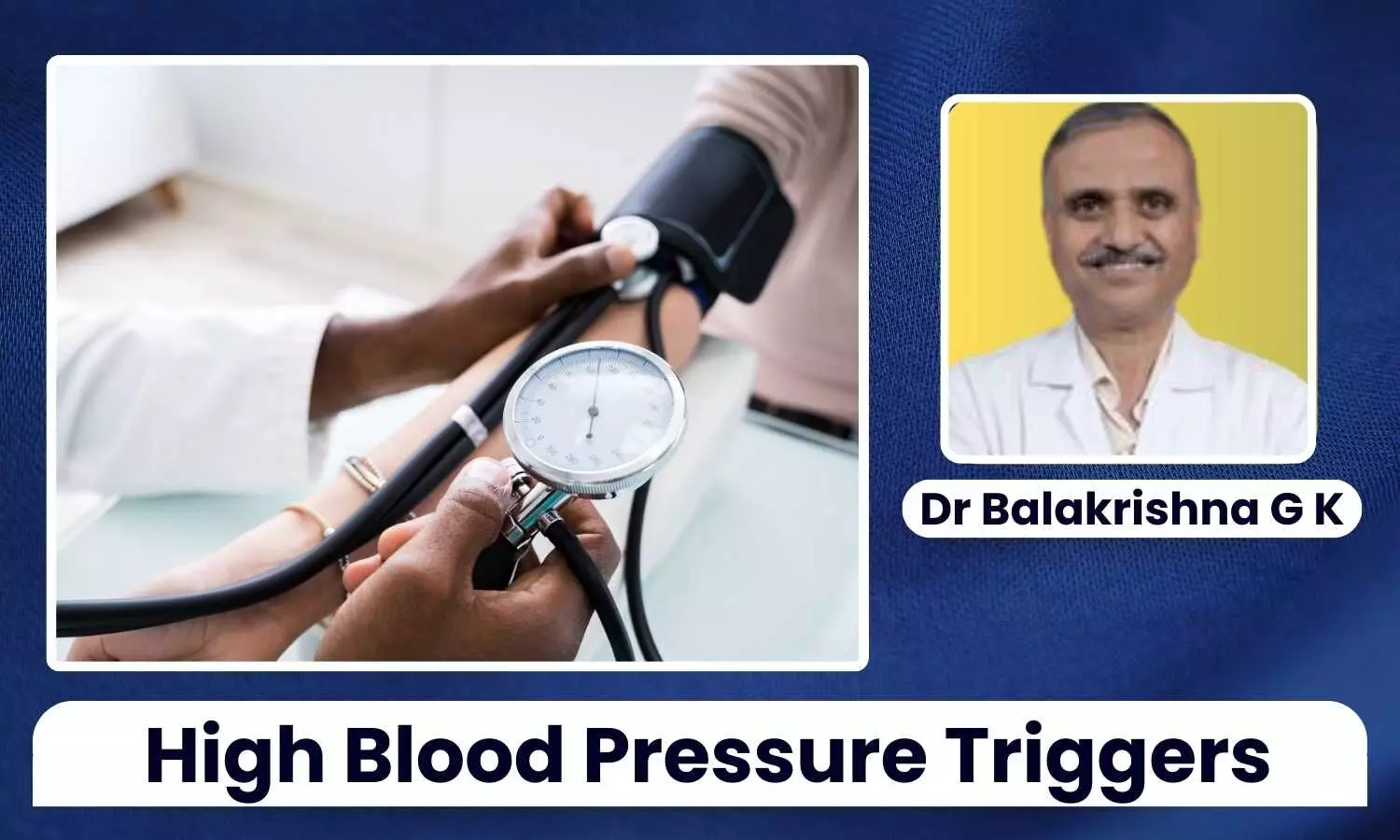Not Just Salt: Unexpected Triggers of High Blood Pressure in Urban Indians - Dr Balakrishna G K

When we think of high blood pressure (hypertension), the usual culprits come to mind: too much salt, lack of exercise, or unhealthy eating.
While these are well-known risk factors, a growing number of urban Indians are discovering that their rising blood pressure may have more to do with lifestyle patterns they don’t even realize are harmful.
From endless traffic jams and erratic sleep cycles to constant smartphone scrolling and energy drink habits, hypertension today is being driven by a modern urban lifestyle that silently wears down the body.
Rising Hypertension in Urban India
India is home to over 220 million people living with high blood pressure. Alarmingly, a large portion of them are under 40, and many don’t even know they’re hypertensive until they have a routine check-up or a health scare.
While diet and genetics play their part, urban doctors are seeing a sharp spike in patients whose blood pressure is being triggered by non-traditional factors, ones that often get overlooked during a casual consultation.
Many of my patients are genuinely surprised when they learn their blood pressure issues aren’t just about what’s on their plate, but how they live day to day.
1. Poor Sleep and Erratic Bedtimes
A good night’s sleep is one of the most underrated health habits. Studies show that sleeping less than six hours a night or having disturbed, fragmented sleep can increase your risk of high blood pressure.
Late-night screen use, binge-watching, or being “on call” for work emails around the clock interferes with the body’s natural sleep-wake cycle. This leads to chronic stress and hormonal imbalances that keep blood pressure elevated, especially at night.
2. Long Commutes and Traffic Stress
For many urban Indians, daily commutes can stretch over 2 to 3 hours. Sitting in traffic, breathing polluted air, and dealing with road rage day after day can create a low-grade but constant state of mental and physical stress.
This stress leads to the release of cortisol and adrenaline, hormones that constrict blood vessels and raise your blood pressure. Combined with a lack of physical activity during these long sedentary periods, this creates a perfect storm for hypertension.
3. Smartphone Overuse and Blue Light Fatigue
We carry our phones everywhere, but they’re doing more than just helping us stay connected. Excessive screen time, particularly on smartphones, is linked to higher stress levels, poor sleep, and a more sedentary lifestyle.
Checking notifications at bedtime can delay sleep, reduce melatonin production, and lead to sleep deprivation, one of the newer yet well-documented contributors to high blood pressure. The mental fatigue from doomscrolling news or social media isn’t heart-friendly either.
4. Energy Drinks and Hidden Caffeine
That mid-morning energy drink or “power shot” might be doing more harm than good. Many energy beverages contain very high doses of caffeine and added sugars, both of which can temporarily spike blood pressure.
When consumed regularly, they can contribute to sustained elevation of blood pressure, palpitations, and even anxiety, especially when combined with poor sleep or dehydration.
5. Dehydration and Skipping Water
Urban professionals often get through their day with coffee, tea, and maybe one bottle of water. Dehydration can thicken the blood, forcing the heart to work harder to pump it through the body, thereby raising blood pressure.
Additionally, people who are mildly dehydrated may experience symptoms like fatigue and headaches, often misattributed to stress or hunger.
6. Constant Mental Load and Work Burnout
Working parents, remote workers juggling multiple roles, and professionals caught in an always-on loop are increasingly showing signs of burnout-induced hypertension. The lack of mental downtime and unrelenting pressure to perform adds a heavy toll on the cardiovascular system over time.
Taking Control Before It’s Too Late
The tricky part about high blood pressure is that it often has no obvious symptoms until it becomes dangerous. Headaches, fatigue, or irritability are easy to brush off, but left unchecked, hypertension can damage the heart, kidneys, eyes, and brain.
The key lies in early detection and holistic management.
Check your BP at least once every six months, even if you feel fine. Today’s triggers are subtle but persistent. And remember, managing blood pressure isn’t only about reducing salt, it’s about rethinking how we live.
Final Word: Rethink Your Routine
If you’re under 45, live in a city, and find yourself frequently tired, stressed, or sleepless, your blood pressure might already be creeping up. Don't wait for a scare.
Make small, mindful changes, set screen limits, prioritize 7–8 hours of sleep, hydrate well, cut back on energy drinks, and take short walks during your commute or workday.
And most importantly, visit a specialist if you notice recurring symptoms or have a family history of hypertension. Catching it early can save your heart, and your life.


